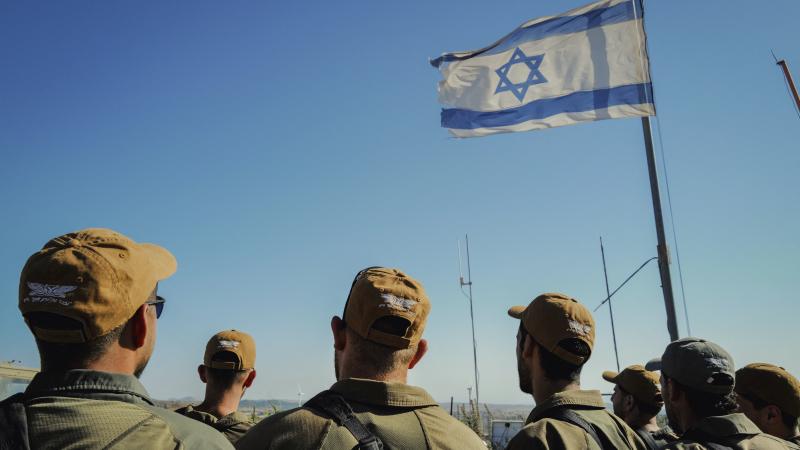Jerry Falwell Jr. vows to sue NY Times for claim he brought coronavirus to Liberty U.
Falwell, Liberty's president, was widely attacked in the media for a March decision to reopen the campus to a small fraction of the student body.
"They never spoke to anybody at Liberty."
That's what Jerry Falwell, Jr., says about reporters from the New York Times who came to Liberty University in Lynchburg, Va. at the end of March.
Falwell had made the then-controversial decision to welcome back a small fraction of residential students to the school, a move that ignited nationwide controversy and led to claims that Falwell was facilitating the spread of the virus and exposing Liberty students to grave danger.
That fear was best personified by a headline at the Times on March 29: "Liberty University Brings Back Its Students, and Coronavirus, Too." The paper quickly changed that assessment when it was learned that the one Liberty student to test positive for coronavirus actually lived off-campus. (The school at the time was not offering on-campus instruction to any student, residential or not). The headline was edited to state instead that the school brought back "coronavirus fears."
Falwell claimed that the paper barely gave the university time to comment. "They called us and said we have already written a story, but they asked a few questions, and they gave us till three o'clock, when they published," he said.
Now, Falwell said, he has engaged a law firm to draft a suit against the Times, one that should be coming down the pipe soon. "We're gonna fight, and they're not gonna get away with it, I promise," he said.
Other outlets piled on Falwell after his against-the-grain decision in March. The Washington Post declared that "an authoritarian power structure brought coronavirus to Liberty University." The Financial Times reported without evidence that, upon returning to Liberty, "twelve students promptly came down with coronavirus." It took the publication a week to correct that error.
In an interview for the John Solomon Reports podcast, Falwell explained his reasoning for bringing back a portion of the student body in March even as virtually every other college campus in the country was shut down.
"Some had elderly relatives at home, some didn't have high speed internet at their home so that they couldn't do their education," he said. "And others were just international students." The school welcomed back around 1,200 of the normally 8,000 residential students it normally sees on campus, instituting numerous sanitation and safety measures in the process.
'It all can be done, and it all can be done safely'
The move to reopen angered Virginia's Democratic Governor Ralph Northam, who during a state press conference quoted scripture in an effort to pressure Falwell to shut the campus down. The same day Liberty students began returning, Northam unilaterally closed down what he deemed "non-essential" businesses in the state; he also forbid state residents to gather in groups larger than 10.
State officials ended up launching multiple surprise inspections at Liberty. "They gave us glowing reviews and reports on how well we were doing and following all the guidelines," Falwell said. "We did everything by the book, we protected our students, we put 'No trespassing' signs all over campus to keep others from bringing the virus into the campus."
Yet media claims of viral outbreaks on campus persisted. "The problem is 750 different news outlets picked up [the Times'] false story," Falwell said. "And there's no way they can get those outlets to take out a correction even if they decided to correct it."
Looking forward to the next semester, Falwell said he expects the campus to be open. He cited Mitch Daniels, the president of Purdue University, who has vowed to reopen his school's campus in the fall and who has pointed out that college students are at vanishingly low risk from the coronavirus.
"We feel the same way," Falwell said. "The chances of someone college-aged contracting this virus and passing away is almost zero."
He added that the school is looking into ways to protect the smaller number of vulnerable individuals that come to campus, such as older teachers.
But "it all can be done, and it all can be done safely," he said.














